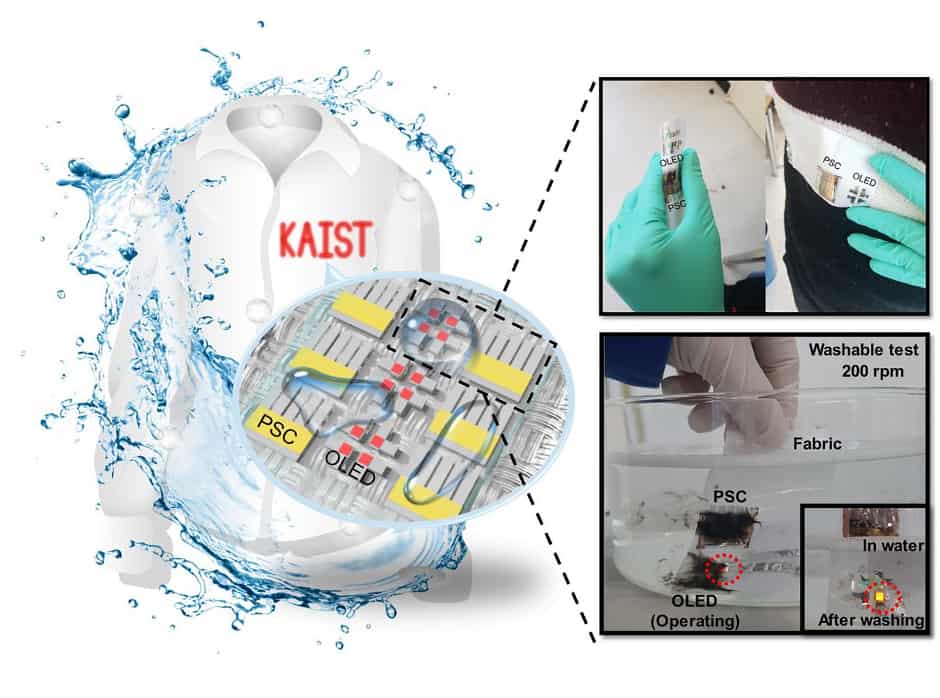South Korean team develops machine washable wearables

A research team in South Korea has developed a textile-based wearable display that is machine washable and powered by solar energy.

Prof Kyung Cheol Choi from the School of Electrical Engineering at KAIST (Korea Advanced Institute of Science and Technology) and his team fabricated their wearable display modules on real textiles that integrated polymer solar cells (PSCs) with organic light emitting diodes (OLEDs).
According to KAIST, PSCs have been one of the most promising candidates for a next-generation power source, especially for wearable and optoelectronic applications because they can provide stable power without an external power source, while OLEDs can be driven with milliwatts. A major drawback for both has been their vulnerability to external moisture and oxygen. The encapsulation barrier is essential for their reliability. The conventional encapsulation barrier is sufficient for normal environments; however, it loses its characteristics in aqueous environments.
Register now to continue reading
Thanks for visiting The Engineer. You’ve now reached your monthly limit of news stories. Register for free to unlock unlimited access to all of our news coverage, as well as premium content including opinion, in-depth features and special reports.
Benefits of registering
-
In-depth insights and coverage of key emerging trends
-
Unrestricted access to special reports throughout the year
-
Daily technology news delivered straight to your inbox










UK Enters ‘Golden Age of Nuclear’
The delay (nearly 8 years) in getting approval for the Rolls-Royce SMR is most worrying. Signifies a torpid and expensive system that is quite onerous...